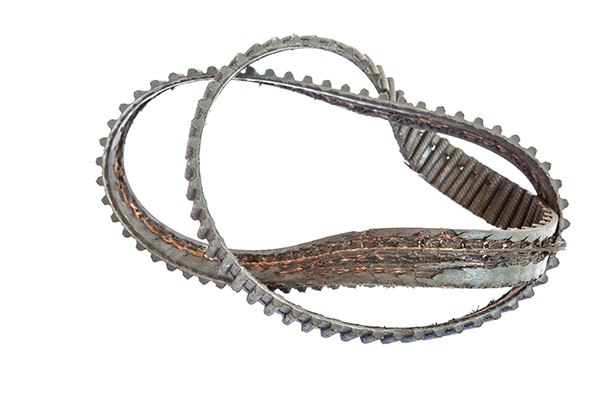
Your car’s engine relies on several essential components working together, and one critical piece that often goes overlooked is the belt system. Whether it’s a serpentine belt or a timing belt, these belts play a crucial role in keeping your engine running efficiently. But what happens when these belts begin to wear and crack? Could a simple crack in your belt lead to engine trouble?
1. The Role of Engine Belts
In most cars, you’ll find either a serpentine belt or a timing belt—or both. The serpentine belt powers various systems, including the alternator, power steering, and air conditioning. On the other hand, the timing belt synchronizes the camshaft and crankshaft, ensuring that your engine’s valves open and close at the right times.
These belts are made from durable materials like rubber, but even the toughest belts wear down over time due to heat, friction, and age. As the belt ages, it can develop cracks, fraying, or even snap entirely, leading to serious engine problems.
2. How a Cracked Serpentine Belt Affects Your Engine
A cracked serpentine belt may seem like a minor issue at first, but it can have significant consequences for your engine. The serpentine belt drives many of your car's auxiliary systems. If the belt is cracked or worn out, it can slip or break entirely, which can cause a domino effect of problems.
When a serpentine belt fails, systems like the alternator, power steering, and even the air conditioning can shut down. In worst-case scenarios, your engine can overheat because the water pump—also driven by the serpentine belt—stops working. A broken serpentine belt can leave you stranded on the side of the road, facing expensive repairs.
3. The Danger of a Cracked Timing Belt
If you think a cracked serpentine belt is bad news, a cracked timing belt can be even more disastrous. The timing belt is crucial for synchronizing the movement of engine components. If the timing belt breaks, it can cause severe damage to your engine. In many cases, a broken timing belt results in bent valves, damaged pistons, or even a complete engine rebuild. The repair costs of a broken timing belt are often astronomical compared to the relatively low cost of replacing the belt itself.
Even a small crack in your timing belt should be taken seriously. If you notice signs of wear, it’s essential to get it replaced before it snaps and causes more extensive damage.
4. Warning Signs of a Cracked Belt
So, how can you tell if your serpentine or timing belt is cracking? There are a few common warning signs you should keep an eye out for:
- Squealing or chirping noises: If you hear high-pitched sounds coming from the front of your car, it could indicate that your serpentine belt is slipping or becoming misaligned.
- Engine misfires: A cracked timing belt can lead to engine misfires, as the synchronization between engine components becomes compromised.
- Visible cracks or wear: You can often inspect your serpentine belt visually. If you see cracks, fraying, or other signs of damage, it’s time to replace the belt.
- Loss of power: A failing belt can lead to a noticeable loss of power, especially when operating systems like the power steering or air conditioning.
5. Preventing Belt-Related Engine Problems
The best way to prevent engine problems caused by a cracked belt is to follow a routine maintenance schedule. Your vehicle's owner manual should outline when to inspect and replace both the serpentine and timing belts. Generally, serpentine belts last between 60,000 and 100,000 miles, while timing belts have a lifespan of 60,000 to 90,000 miles.
Regularly checking the condition of your belts for cracks, wear, or other signs of damage can save you from costly repairs down the road. When in doubt, it’s always better to replace a worn belt before it fails completely.
Don’t wait until it’s too late! If you're hearing strange noises or suspect your belt may be cracked, bring your vehicle to Autotrends. Our experts can inspect and replace your belts before they cause serious engine trouble.